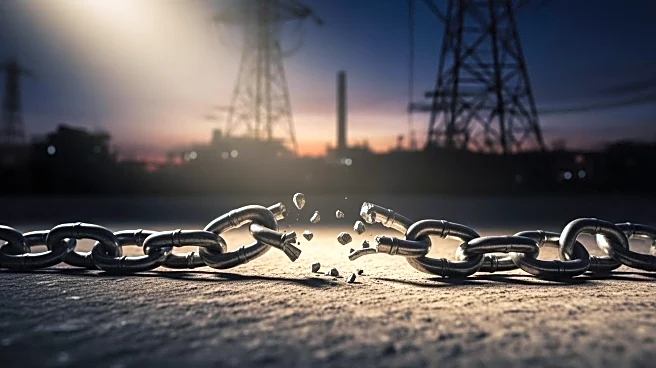What's Happening?
Ukrainian forces have successfully thwarted Russian efforts to reconnect the Zaporizhzhia nuclear power plant to the Russian grid. The plant, Europe's largest, has been under Russian control since early
in the invasion but lost external power in late September. Ukrainian guerrilla fighters reportedly attacked substations and damaged a new connection to the Russian grid, preventing the plant from being reconnected in time for President Putin's birthday. The plant was forced to rely on diesel backup generators, which are not sustainable long-term. Ukrainian energy minister Svitlana Grynchuk confirmed that power was restored by linking the plant to Ukraine's grid. The International Atomic Energy Agency facilitated a local ceasefire to allow repairs.
Why It's Important?
The disruption of Russian plans to reconnect the Zaporizhzhia plant underscores the ongoing strategic and tactical maneuvers in the region. The plant's reliance on backup generators posed significant risks to nuclear safety, highlighting the precariousness of energy infrastructure in conflict zones. The successful Ukrainian intervention not only prevents Russia from consolidating control over critical infrastructure but also maintains Ukraine's influence over the plant's operations. This development could impact regional power dynamics and energy security, affecting millions of homes that rely on the plant's output.
What's Next?
The situation remains tense as both sides continue to vie for control over the plant. Further attacks or sabotage could occur, potentially leading to more power disruptions. The international community, particularly nuclear safety organizations, will likely monitor the situation closely to prevent any nuclear safety incidents. Diplomatic efforts may intensify to secure a more permanent resolution to the plant's operational status.









